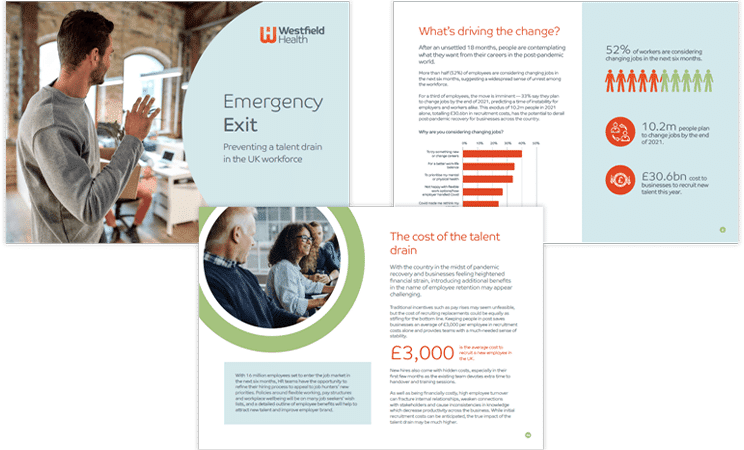As the economy begins to recover and the world continues to adapt to the new normal, how are employees feeling about their current job?
While the focus for leaders has been economic recovery, the post-pandemic workplace is driving employees to reconsider their priorities.
With an increased focus on personal wellbeing over the last 18 months, companies are at risk of losing their best talent as millions of workers plan to change jobs and put their health at the forefront of their decision.
This employee exodus would come at a cost of £48.2bn to UK businesses, as they seek to recruit new talent on an already volatile economic backdrop.
We asked 1,500 people from across the UK about their attitudes to job changes, mental health and burnout.
This report explores what’s causing so many people to consider changing jobs and how employers can improve their working conditions to prevent a talent drain in the UK workforce.
Key findings include:

16 million workers plan to change jobs in the next six months, at a cost of £48.2bn to UK businesses.

62% of employees admit they’ve been working more hours since the start of the pandemic, totalling 8.7bn hours.

59% say mental health is driving them to change jobs.

Over half the workforce (51%) feels they’re less than a month away from burnout.

83% of employees would stay if their employer made some changes.

47% of all employees consider flexibility to be more important to them than before the pandemic.
Webinar Emergency Exit: How to retain your employees and prevent burnout
Watch our recent webinar where our expert panel discuss the employee retention crisis in the UK, what can be done to reduce staff turnover and how to look after your employees’ wellbeing to prevent burnout.
What you’ll learn:
- The current employee retention and recruitment crisis in the UK
- What job seekers are looking for from an employer in the post-pandemic world
- How can employers create a wellbeing culture that retains and attracts their people
- Tips for managers to prevent burnout within their team

